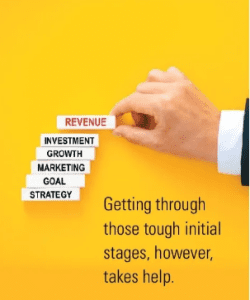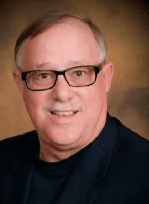When a new technician begins their career at a dental laboratory, whether a new graduate from a formal D”LT program or someone looking to enter a new field, it can be overwhelming. Not only are they put to the mettle to learn the techniques, workflows, and the specific processes, they also need to absorb and adjust to interactions with coworkers, trainers, the owner, and potentially clients. Throw into the mix that this is their first “real life” introduction to the dental laboratory industry itself, and well, it’s a lot to take on. For those who have been in the industry for some time, it is easy to forget what it’s like in the beginning. Picture the first day of Chicago Mid-Winter and imagine, that’s how it might feel walking into the lab for the first time. Taking the time to go back to the basics gives new technicians a chance to take a deep breath and fall in love with the industry, and garners excitement to carry it forward to the next generation.
Robert Hayes, CDT, is the program administrator for dental laboratory technology at Bates Technical College, Tacoma, Wash. Hailing from one of the few remaining formal dental laboratory technology programs, he is a die-hard fanatic for the industry; his passion and love are clearly evident for both the people and the craft. He has worked with a lot of students of many ages and backgrounds and has some advice for what new technicians should know when beginning their career.
“It’s cliché, but being a lifetime learner is the most important concept,” said Hayes. “You can’t ever rest on what you know; you have to keep learning and be anxiously engaged in learning what’s next and what you can improve on.”
When it comes to what technical skills beginners should master, Hayes recommends first and foremost learning the terminology. Being able to communicate and utilize the correct terminology with dentists will garner respect from the dentist. No one wants to talk to a dentist who then asks to speak with someone more knowledgeable. Understanding tooth contour and anatomy is also an important journey for the new technician.
Hayes said, “The marketplace will throw in all sorts of new materials, but if you know contour, you can adapt in any way. Technology changes everything, but a good technician from thirty years ago who knows how to contour can be taught the technology and materials, and they’d still be a great technician. Don’t let technology be a crutch. Everyone is looking to AI these days to make things easier and more efficient, but someone still needs to look at the case and decide what direction to go. Do we morph the tooth or facet it? What looks natural and what does the patient want? Pay your dues and learn terminology, contour, and occlusion, and you’ll be the technician who advances.”
New technicians may not fully realize the importance of finding not just a paycheck but the right culture. Technicians need a healthy environment that provides growth and appreciation. A lab should be a space to make mistakes but learn, and eventually master the skills and move to the next level, and in return, become indispensable.
“Technicians today have the opportunity to learn so much,” Hayes said. “In the past, the industry used to be much more clandestine about techniques as everyone was scared of the competition. With today’s digital processes, work can be obtained not just from the local neighborhood but across the U.S., which makes people less protective and more collaborative. People want others to be successful; just reach out and find someone as passionate as I am about the industry, and you’ll find support.”
While all graduating students are placed from his program, Hayes shares the caveat that not all remain technicians. He reminds owners and managers of the importance of being supportive and encouraging, especially in the beginning, so as not to discourage new technicians from the industry as a whole. It is the responsibility of the owner to create a culture that draws people in, and treats them well, so that they do not want to leave the lab or the industry. This is just one of many important things that new owners need to keep in mind as the “basics” when opening their lab.
Larry Weiss CEPA, CPBA, is the president of Weiss Advisors LLC. He is an industry veteran who provides financial advice to dental laboratory owners. For new owners, he recommends that the entrepreneurial process should begin with the end in mind.
When you open, you should think about what you want three years from now,” said Weiss. “What do you want to specialize in, how big do you want to grow, do you want to be a boutique lab or work with general practitioners? You need to have your brand and message determined at the beginning, otherwise, I have found that every good idea is an object to be chased. Donald Miller wrote a book entitled, Building a StoryBrand, along with a self-paced webinar, and it really helps new business owners to distinctly figure out who they want to be, who they want to serve, and what they want to do. There’s 200,000 dentists out there; zero in on what is important to you.”
When I started my consulting business, this webinar helped me figure out my messaging and right customer, so I didn’t waste time chasing other things. It was the best $275 I ever spent! – Larry Weiss
Entrepreneurs need to have a good hard look at their risk tolerance. For example, if the thought of stock going down makes someone sick, they probably don’t have the temperament to own their own business. Starting a business also requires selling oneself, which may not be comfortable for some. It’s critical to do some professional and personal soul searching before taking the leap.
New owners should also be prepared that starting a new business will cost more, and take longer, than expected. In addition, it will be cyclical. At the start-up phase, there is excitement and a willingness to work 12-hour days. Then, business may not be coming in, and it’s a lot harder than anticipated. Many don’t make it past this stage. If they do, they might find themselves in a thriving business and ready to hire more staff.
Getting through those tough initial stages, however, takes help. Some resources include local or state business assistance, Chambers of Commerce, manufacturing groups, and financial grants that counties, cities, or states may provide. Weiss encourages new owners to find a good accountant early on, as they will likely be knowledgeable of what is available.
Weiss said, “I’m also a big fan of the NADL. NADL has resources to help and provides opportunities to attend events and network with like-minded peers to find advice and experience-based wisdom. Dental laboratory owners will help anyone just as long as they are sincere.”
Originally published in the Journal of Dental Technology May 2023 Issue









